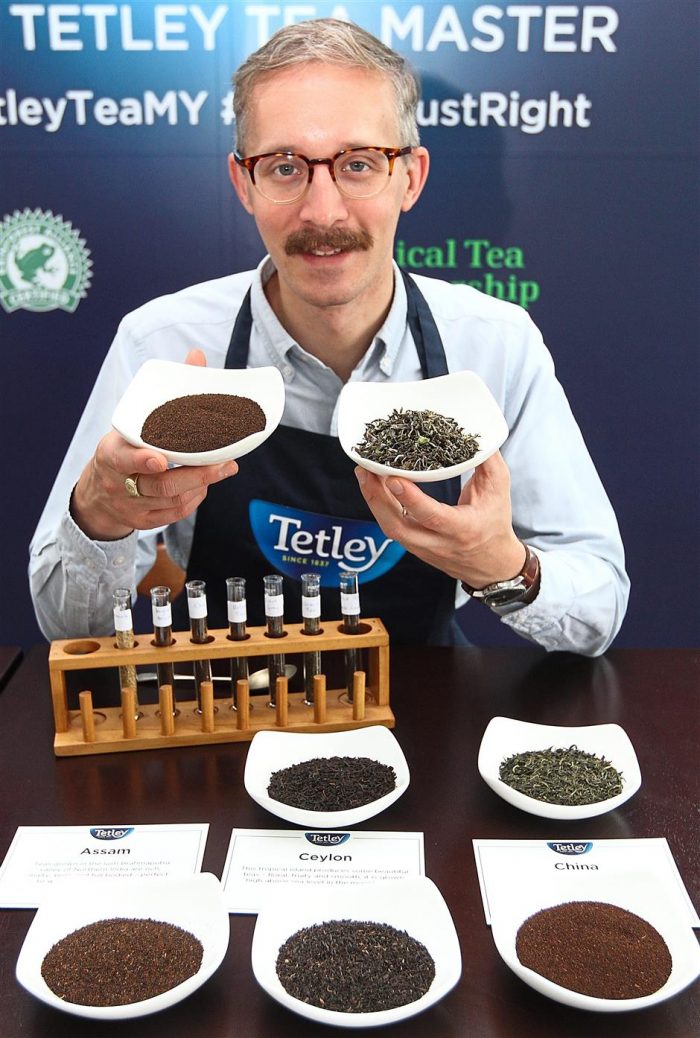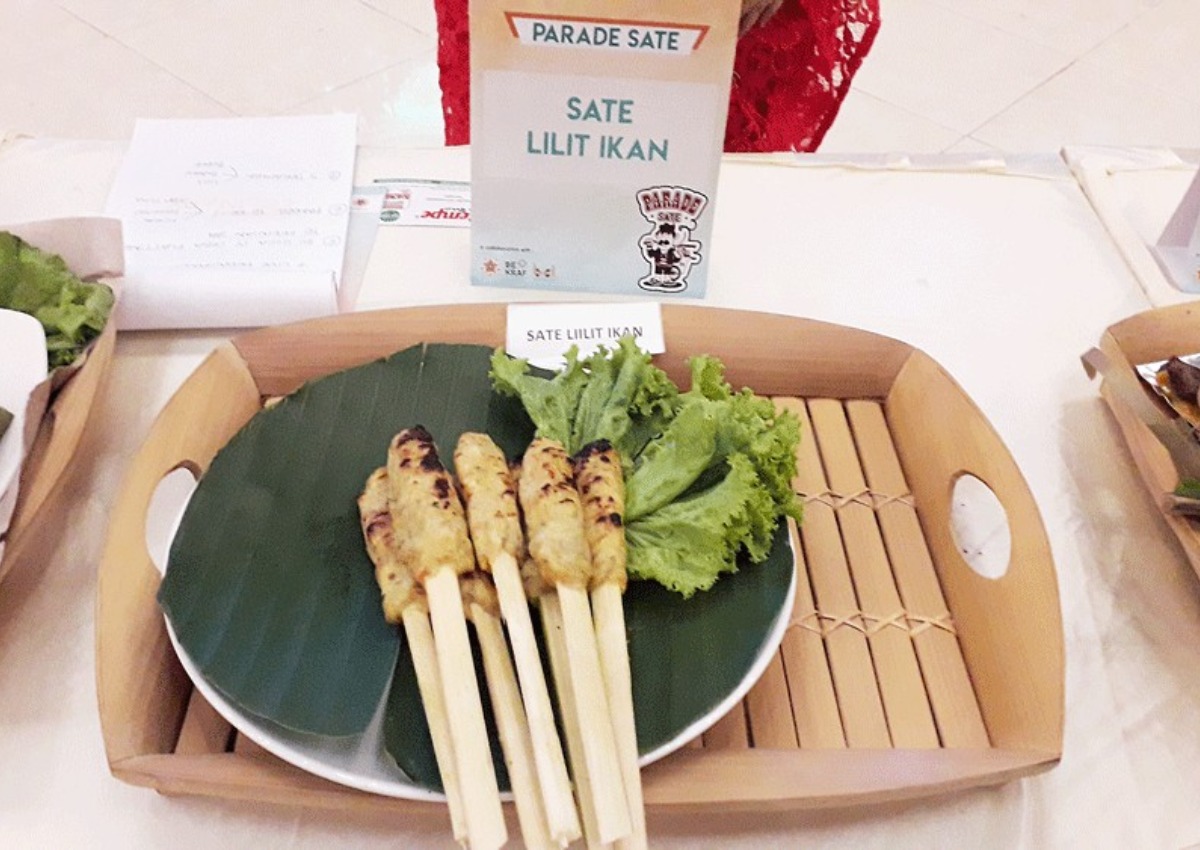His tea-tinged tastebuds are worth a cool million pounds
Sebastian Michaelis is a professional tea taster. So valuable are his tastebuds to the British tea brand Tetley, that the company has insured his tongue for £1mil (S$1.8mil).
“The insurance is a reflection of the investment that Tetley has put into me. Really, it is less about my tongue and more about the years of training and the difficulty to find someone who can taste tea,” says the 34-year-old Brit who was in Kuala Lumpur recently.
Michaelis has been a master tea taster for over 10 years, and his venture into the tea industry was actually by chance. Sure, like most Brits Michaelis loves his cuppa, but to become a tea taster? He didn’t even know the job existed until he attended the interview.
After graduating with a degree in Psychology, Michaelis randomly responded to an ad which read: “Do you like tea? Do you like to travel?” The answers were “Yes” and “Yes”.
The interview was a two-day assessment that included answering questions from senior tea tasters, as well as solving problems related to the industry.
Michaelis got the job and it wasn’t long before he realised that a tea taster has to do more than just tasting and spitting teas.
During the first five years at Tetley, Michaelis underwent intensive training, one that included living in several tea-producing countries such as Kenya and India.
“I visited the farms to learn how tea is grown, cultivated and produced. The tea tasters are also required to oversee tea supply chains and negotiate contracts. We have to be experts in all aspects of tea, from how it is grown and until we pack it in teabags,” he adds.
Michaelis estimates that he has tasted 300,000 to 400,000 teas from all over the world. Every country has tea with different characteristics, which varies according to the tea gardens within the country.
“It depends on the elevation, how it is grown. Normally, higher grown tea tend to have more concentrated flavour. It also depends on the level of sunshine, rain, soil, and also the skills of the factory managers,” he explains.
“We have our own internal tea language called ‘Uhuru’ which means freedom in Swahili. We developed this language over several years, and it allows us to quite methodically and scientifically grade the teas using a number system and we grade them on four broad parameters,” the tea taster explains.
First is zing, the overall mouthfeel when you slurp the tea. “If the flavour lasts a long time, even 30 seconds, then it is a really high zing tea. It is a really high quality tea, so you can really taste that flavour in your memory. A poorer quality tea, with lower zing, just washes away, and there is no flavour afterwards,” he shares.
Colour ranges from very red to very yellow and everything in between.
“Colour is important because many of our consumers, especially those who drink with milk, want to see the strength of the tea in the cup when they are brewing it,” says Michaelis.
The sparkle is about the purity of the tea. “Indonesian tea is duller than the Kenyan tea, though they are of similar colour. Usually, the sparkle is an indicator of good quality tea.”
Body is the thickness of the tea; like wine it could be thin or thick. “Thickness is a positive thing; it gives a good mouthfeel,” says Michaelis.
The tea tasters will taste and give each batch of teas very precise “fingerprints”, as they call it.

Photo: The Star/Asia News Network
“So when it goes on our stocks, we are able to blend them together in theory without tasting – adding a little bit here, take a little bit there, just to give the same blend.”
“We usually use milk when tasting because it allows you to see the colour of the tea. Sometimes we make blends that are not intended to be drunk with milk, but it helps us to see that colour. But we taste them black as well, to ensure that the consumers are getting the same experience. Of course with green tea, we don’t taste with milk.”
There is even an art to tea tasting. One has to sharply slurp the tea, and the noisier it is, the better. This allows for more air to enter the mouth which then oxygenates the tea and produces the full flavours.
Michaelis claims that anyone can be a tea taster, because it is all about practice.
“Tea is such a varied product, and not many people realise that because they would buy a packet of tea and it tastes the same every time,” he says.
To get the tea to taste the same in each batch Tetley produces is where Michaelis’ expertise comes handy.
“You can always buy single origin teas online, but to be honest, it takes years of practice to get the right balance. The differences in tea can be subtle, but can be quite wide as well, and my job is to ensure that one taste doesn’t overwhelm the other.
“That’s the secret to the job really. People can always experiment blending their own tea at home, but that’s my role basically, to take that thinking out of it and make a blend which is just the right balance of flavours.”
Michaelis’ million-pound tastebuds are put to work almost every day, and surprisingly, there isn’t any restriction to what he could consume.
“Generally, I can eat what I like. I can’t have anything strong within an hour of tasting, so I have to be careful about flavours. I can’t wear perfume or aftershaves because it affects the nose, and the only time I won’t taste, or can’t do tastings, is when I have a cold. When my nose gets blocked, I have to pass it on to a colleague to do my tasting for me.”
So how does the insurance, contingent on annual reviews, work since human tastebuds degenerate as one gets older? Without getting into the mechanics, Michaelis explains how or when he would be eligible for a payout.
“People have been known to lose their sense of taste, and touchwood, hopefully never happens. Actually, what is interesting is that although it is my tongue that is insured, a lot of the flavours that you get when you’re tasting is in the nose.” Michaelis jokes that he should encourage Tetley to insure his nose next.
“The level of how your taste buds change over time isn’t significant enough to affect my ability to taste. It is compensated by experience. Unless I lose all of my sense of taste, I think I am okay.”
Published at Sat, 30 Sep 2017 11:00:00 +0000



